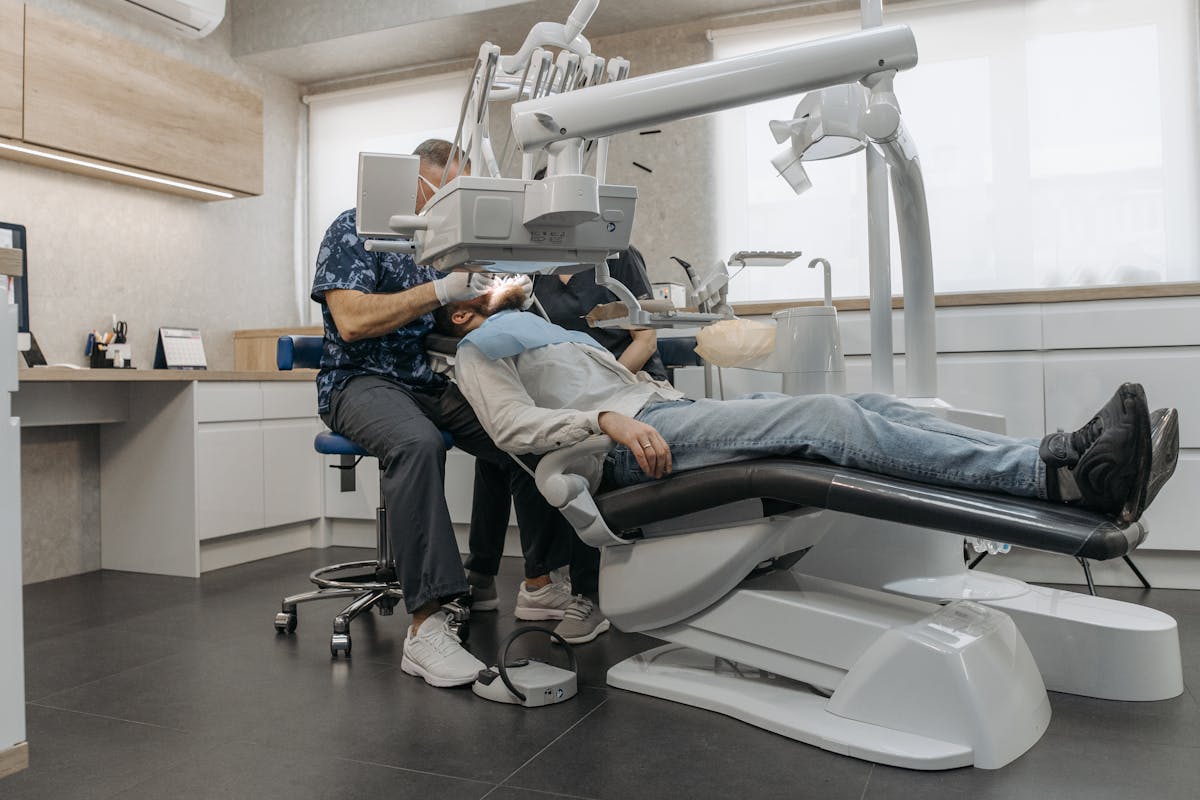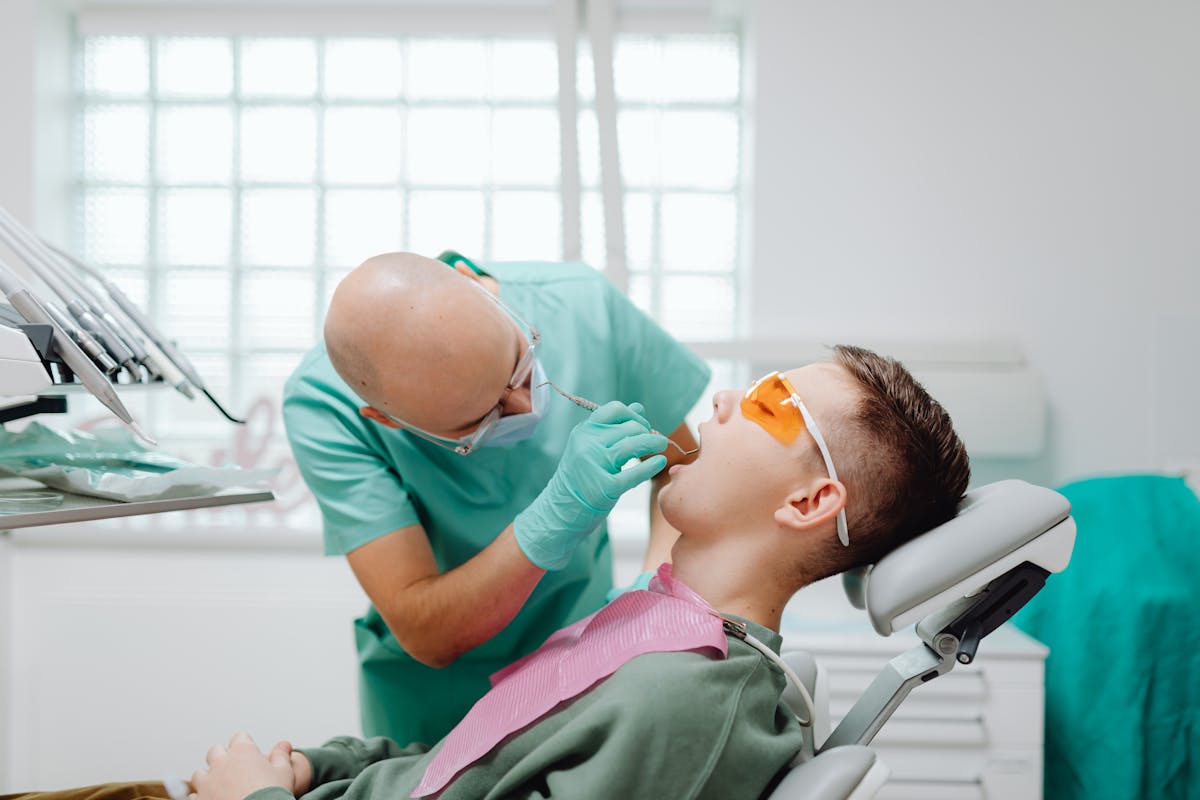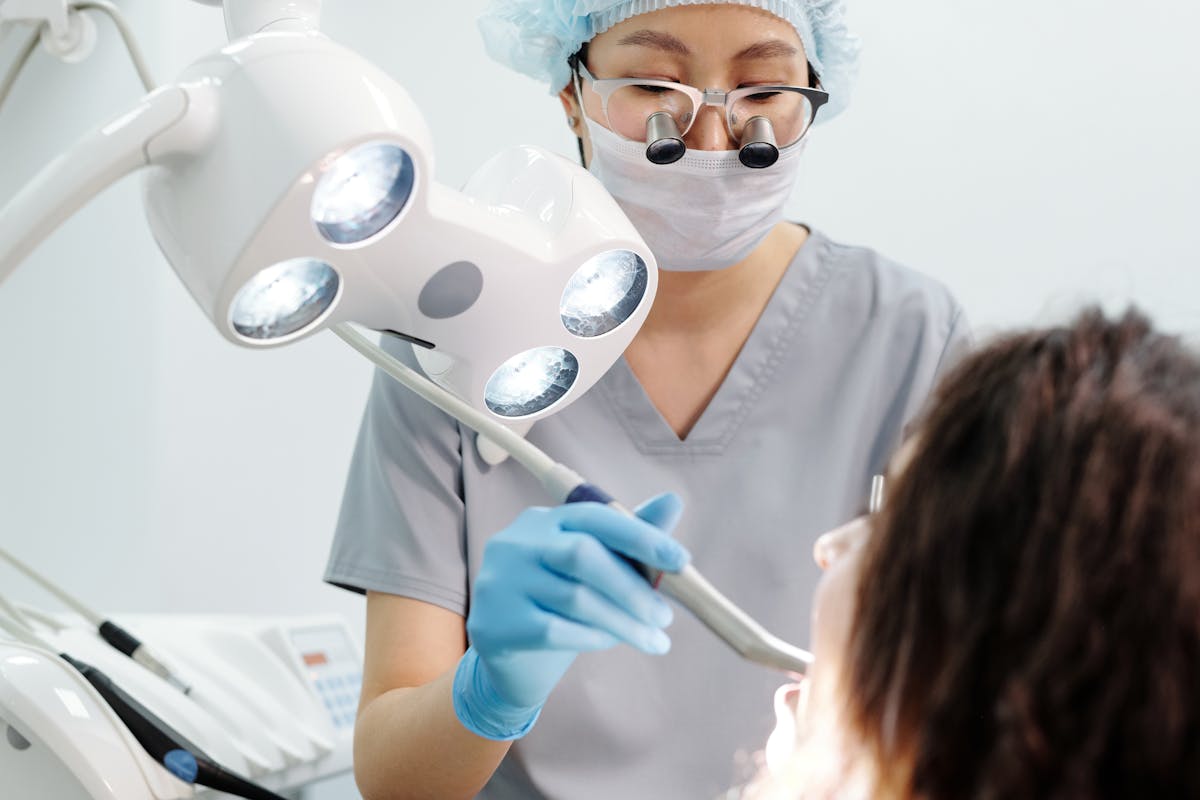Preventive Dental Treatment St, Graham, TX

Preventive dental treatment in Graham, TX, is a critical component of oral healthcare, emphasizing routine check-ups and professional cleanings to maintain peak dental health. Dental practices in the area employ fluoride treatments and sealants as preventive measures against decay. Through community initiatives, residents gain knowledge about effective oral hygiene habits. These efforts collectively foster a culture of oral wellness, reducing the risk of dental diseases. Discover how these practices can guarantee healthier smiles.
Understanding Preventive Dental Care
Preventive dental care, why is it vital for maintaining oral health? Effective preventive strategies are essential to forestalling oral pathologies. It encompasses daily dental hygiene practices, such as meticulous tooth brushing and interdental cleaning, which are foundational in the removal of plaque biofilm. The integration of fluoride treatments enhances enamel remineralization, acting as a deterrent against carious lesions. Dental sealants provide a physical barrier against occlusal surface decay, particularly in vulnerable molars. The application of antimicrobial agents can further reduce the microbial load, mitigating periodontal disease risk. Patient education is integral, empowering individuals to adopt these preventive strategies consistently. By prioritizing thorough dental hygiene, individuals can greatly reduce the incidence of oral conditions, thereby maintaining ideal oral health over time.
The Importance of Regular Dental Check-Ups
While meticulous home care forms the foundation of oral health, regular dental check-ups play a significant role in thorough preventive dental care. These check-ups allow dental professionals to detect early signs of oral pathologies, guaranteeing timely intervention. Extensive evaluations assess oral hygiene practices, identify plaque accumulation, and monitor periodontal health. Regular visits mitigate the risk of complex procedures by maintaining ideal oral health. For individuals with dental anxiety, consistent check-ups can foster familiarity, reduce stress, and build a trusting patient-dentist relationship. Addressing dental anxiety is essential for adherence to recommended care regimens. Ultimately, routine dental examinations are integral to preventing dental diseases and promoting sustained oral hygiene, thereby safeguarding overall systemic health. The proactive approach guarantees effective management of potential dental issues.
Benefits of Professional Teeth Cleanings
Professional teeth cleanings are integral to maintaining oral health by effectively removing plaque and tartar that are not easily eradicated by regular brushing and flossing. This procedure considerably reduces the risk of gum disease, a condition that can lead to more severe health complications if left untreated. By adhering to a routine schedule of professional cleanings, patients can enhance their overall dental hygiene and prevent the progression of periodontal disease.
Plaque and Tartar Removal
Although daily oral hygiene practices are essential, they are not sufficient for completely eliminating plaque and tartar buildup. Plaque formation, a sticky biofilm of bacteria, adheres to teeth surfaces, undetectable without specialized dental instruments. If not removed, plaque mineralizes into tartar, also known as calculus, which forms a hard, yellowish deposit. This tartar buildup cannot be eradicated through brushing or flossing alone, necessitating professional intervention.
Professional teeth cleanings, performed by dental hygienists, employ ultrasonic scalers and specialized hand tools to efficiently remove plaque and tartar. This meticulous process not only improves oral aesthetics but also reduces the risk of dental caries and halitosis. Regular dental visits guarantee thorough removal of these deposits, maintaining peak oral health and preventing further complications.
Gum Disease Prevention
Gum disease, clinically known as periodontal disease, poses a significant threat to oral health, with potential to lead to tooth loss if not adequately managed. Professional teeth cleanings play a pivotal role in gum disease prevention by removing plaque and tartar, primary risk factors for periodontal disease. Regular dental check-ups enable clinicians to evaluate oral hygiene status, tailor prevention strategies, and introduce treatment options if necessary. Key prevention strategies involve maintaining ideal oral hygiene and implementing lifestyle changes such as smoking cessation. Patient education is essential, empowering individuals with knowledge regarding proper brushing techniques and flossing practices. Early detection during dental check-ups allows for timely intervention, reducing the risk of progression and preserving periodontal health. Such proactive measures are integral to thorough gum disease management.
The Role of Fluoride Treatments
Fluoride treatments are a critical component of preventive dental care, offering significant benefits for dental health by enhancing enamel resistance and reducing the incidence of caries. The application process involves the professional administration of a fluoride solution or gel, typically completed in a clinical setting, ensuring ideal concentration and efficacy. Patients can expect a quick, non-invasive procedure that provides long-lasting protection against tooth decay.
Benefits for Dental Health
Fluoride treatments play a pivotal role in strengthening dental health by greatly enhancing enamel resistance to decay. As an integral component of preventive dentistry, fluoride acts by remineralizing tooth enamel, thereby reversing early signs of dental caries. Unlike some natural remedies, fluoride’s efficacy is well-documented, offering superior protection against bacteria-induced demineralization. Dental professionals advocate for its inclusion in routine dental hygiene practices to maintain ideal oral health. By forming a robust barrier on the tooth surface, fluoride treatments effectively reduce the incidence of cavities, particularly in high-risk populations. The benefits extend to both children and adults, ensuring long-term dental health. Importantly, patient education on fluoride’s role can enhance compliance and promote proactive dental care, reinforcing routine hygiene practices.
Application Process Explained
The application process for fluoride treatments, a cornerstone of preventive dental care, involves several precise steps to guarantee maximum efficacy. Initially, dental professionals assess application requirements, ensuring patients meet the eligibility criteria based on age, dental history, and risk of caries. The treatment begins with the cleaning of teeth surfaces to remove plaque and debris, facilitating best fluoride adhesion. A high-concentration fluoride gel, foam, or varnish is then applied using trays or brushes, targeting areas susceptible to decay. The fluoride remains on the teeth for a prescribed duration, allowing for adequate enamel absorption. Post-application, patients are advised to refrain from eating or drinking for at least 30 minutes to enhance treatment effectiveness. This meticulous process underscores the pivotal role of fluoride in dental health maintenance.
How Dental Sealants Protect Teeth
Dental sealants serve as a formidable barrier against tooth decay, particularly on the occlusal surfaces of molars and premolars. These sealants are composed of a protective resin material that adheres to the tooth enamel, creating a shield that prevents food particles and bacteria from settling in the pits and fissures. Various sealant types exist, including glass ionomer and composite resin, each offering distinct advantages. The application benefits are significant, providing an effective, non-invasive method to reduce caries risk. When expertly applied by dental professionals, sealants offer long-lasting protection, typically enduring several years before requiring reapplication. This preventive measure is especially beneficial for children and adolescents, whose newly erupted permanent teeth are most susceptible to decay.
Early Detection Screenings for Oral Health
How essential is early detection in maintaining ideal oral health? Early detection through thorough oral screenings is pivotal in identifying potential oral pathologies before they progress into critical stages. Dental professionals employ systematic examination techniques, including visual inspections and diagnostic tools such as digital radiographs, to assess the oral cavity meticulously. These screenings facilitate the identification of carious lesions, periodontal diseases, and oral malignancies at nascent stages, where intervention is most effective. Through regular oral screenings, practitioners can formulate precise treatment plans, enhancing patient outcomes and preserving dental structures. Additionally, early detection empowers patients with knowledge about their oral health status, promoting proactive behaviors. Preventive strategies developed from these screenings are integral to sustaining long-term oral health and mitigating future complications.
Community Initiatives for Oral Health Education
Building on the importance of early detection in oral health maintenance, community initiatives for oral health education play a significant role in fostering public awareness and engagement. These initiatives include community workshops that provide evidence-based information on preventive dental care. By offering accessible sessions, residents, particularly underserved populations, gain valuable insights into maintaining ideal oral hygiene. Additionally, school programs are instrumental in instilling good oral health habits among children. Through interactive learning and age-appropriate dental education, students are educated on the significance of routine dental check-ups and proper brushing techniques. These structured programs aim to reduce the prevalence of dental caries and promote lifelong oral health. Collectively, such initiatives contribute to a preventative approach, reducing the incidence of dental diseases within the community.
Choosing the Right Dental Practice in St. Graham
Finding the selection of an appropriate dental practice in St. Graham requires evaluating several essential factors to guarantee ideal oral health outcomes. Key considerations include the dental practice’s range of preventive services, clinician qualifications, and utilization of advanced dental technologies. Prospective patients should also scrutinize patient reviews for insights into the practice’s reputation, patient satisfaction, and quality of care provided. Thorough reviews often highlight aspects such as appointment scheduling efficiency, chairside manner of the dental staff, and adherence to evidence-based protocols. A practice with consistently positive patient reviews typically indicates a commitment to high standards of care. Additionally, the practice’s ability to offer personalized treatment plans tailored to individual patient needs is vital in maintaining long-term oral health.
Tips for Maintaining Oral Health at Home
A multitude of effective strategies exist to maintain ideal oral health at home, contributing greatly to overall dental well-being. Key oral health tips include brushing teeth with fluoride toothpaste twice daily, guaranteeing plaque removal and cavity prevention. Flossing is critical for interdental cleaning, reaching areas inaccessible to toothbrushes.
Utilizing antimicrobial mouthwash enhances home dental hygiene by reducing oral bacteria. Dietary choices also impact oral health; limiting sugary foods and beverages reduces the risk of caries. Regularly replacing toothbrushes every three months or sooner if bristles fray guarantees peak cleaning efficacy. Scheduling routine dental examinations and professional cleanings every six months complements at-home efforts, providing extensive dental care. Adhering to these practices effectively safeguards oral health, promoting lifelong dental health.


We're here to help! Call Us Today!
At Twelve Oaks Dental Care, we provide quality family, general, and cosmetic dentistry in a welcoming environment. Our team focuses on personalized care to help every patient feel comfortable and confident in their smile.
